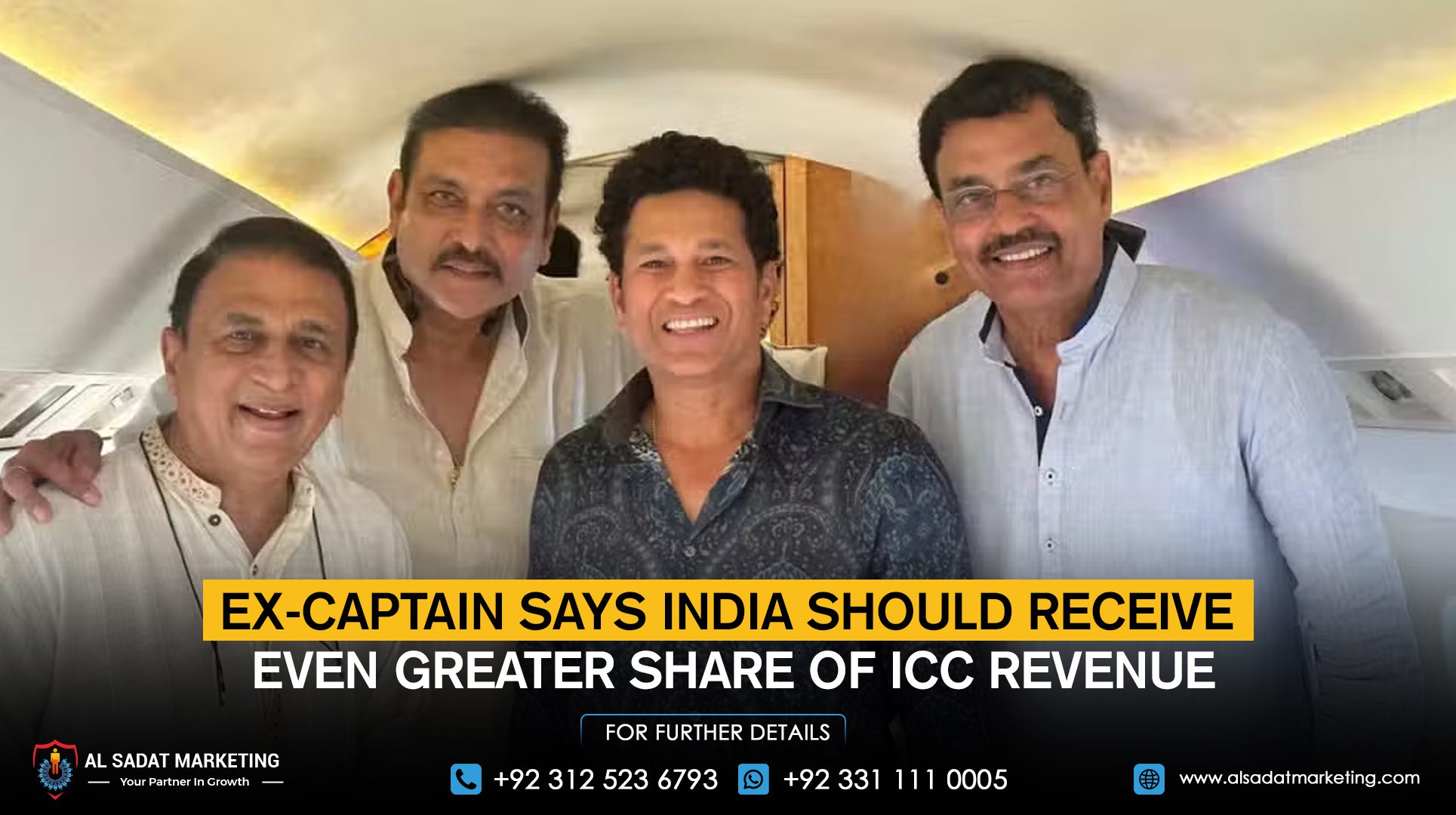Ravi Shastri has thrown his support behind the unpopular ICC revenue-sharing scheme, which unfairly benefits the BCCI, the sport’s richest board, at a time when cricket’s global finances are being scrutinized more than ever.
Former India head coach and current presenter Ravi Shastri defended India’s sizeable share of the International Cricket Council’s (ICC) revenue pool in an interview with the Wisden Cricket Weekly Podcast, saying:
“I’d like more for India,” since India is the source of the majority of the money earned. Therefore, it is only right that they receive their due portion of… Ravi Shastri stated, “And it’s relative, you know, it’s economies.”
India presently receives by far the greatest proportion of any Full Member, accounting for over 38.5% of the ICC’s estimated USD 600 million in revenue from the 2024–2027 cycle. Together, the “Big Three” of Australia, England, and India take home 48.2% of the total prize, with the remaining nine Test countries receiving a far lesser share.
Also Read: Secure Your Children’s Future: Why Every Pakistani Parent Should Own a Plot
“Another stronger economy might emerge tomorrow. Like in the 1970s and 1980s, money may come from there. Additionally, a portion of the funds went to—well, somewhere else. It’s only fair, in my opinion, and the revenues reflect this. When visiting India, consider the television rights and the revenue generated by an Indian series. Therefore, it’s only just that they receive what they now have, if not more,” Ravi Shastri continued.
Ravi Shastri’s comments coincide with a growing discussion about whether a more open, balanced international cricket schedule is being sacrificed in favor of a club of commercially dominant nations. The fact that other countries are already being proposed to play 4-day Test matches while Australia, India, and England continue to play five-day and five-match series starting in 2029 only serves to emphasize the increasing power these three boards wield.
Independent observers and smaller boards have criticized the distribution for increasing financial disparity in the game. However, several Big Three voices have repeated Ravi Shastri’s views, arguing that their wealth is justified by India’s significant contribution to cricket’s economy.
The BCCI and India have undoubtedly influenced cricket in the modern era, but if the sport is to maintain any pretense of impartiality, the necessity of international parity must be addressed as soon as possible.










